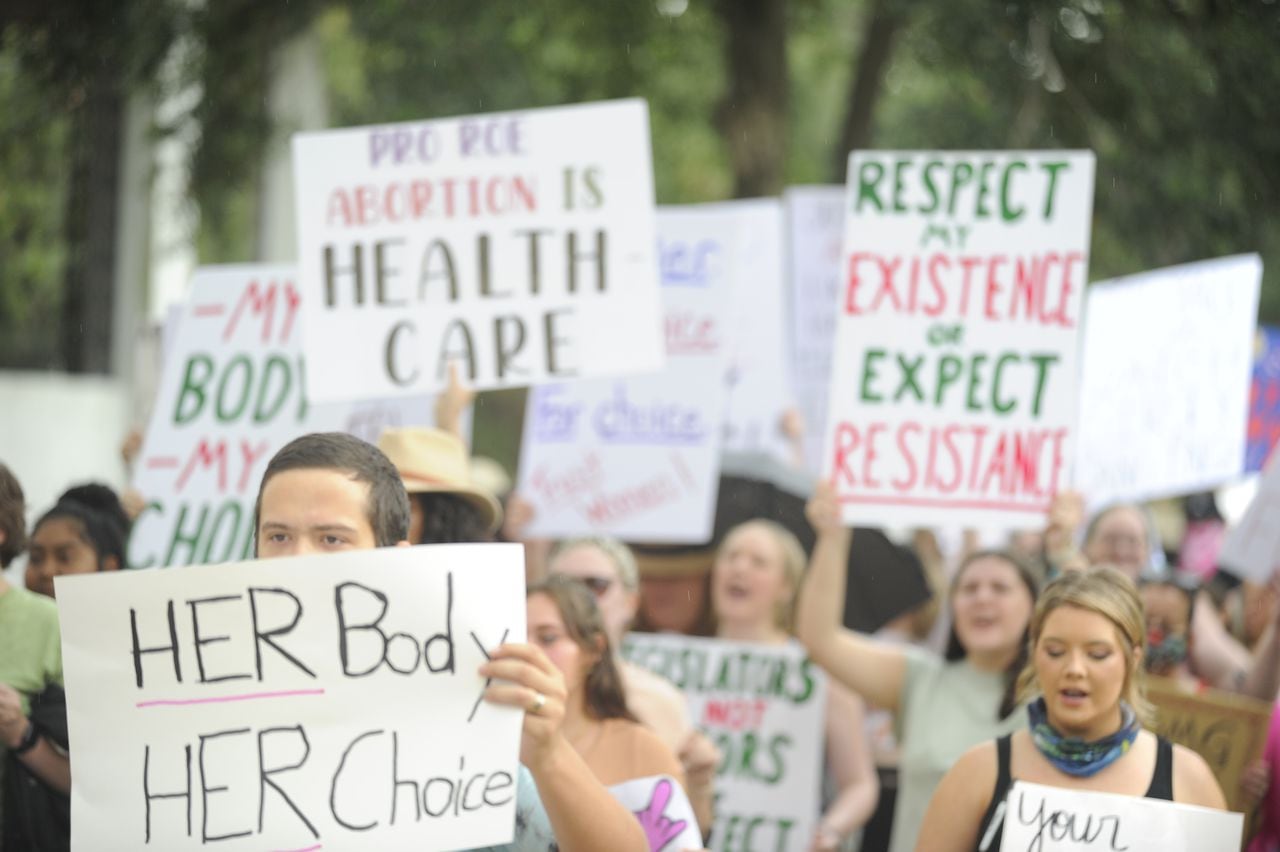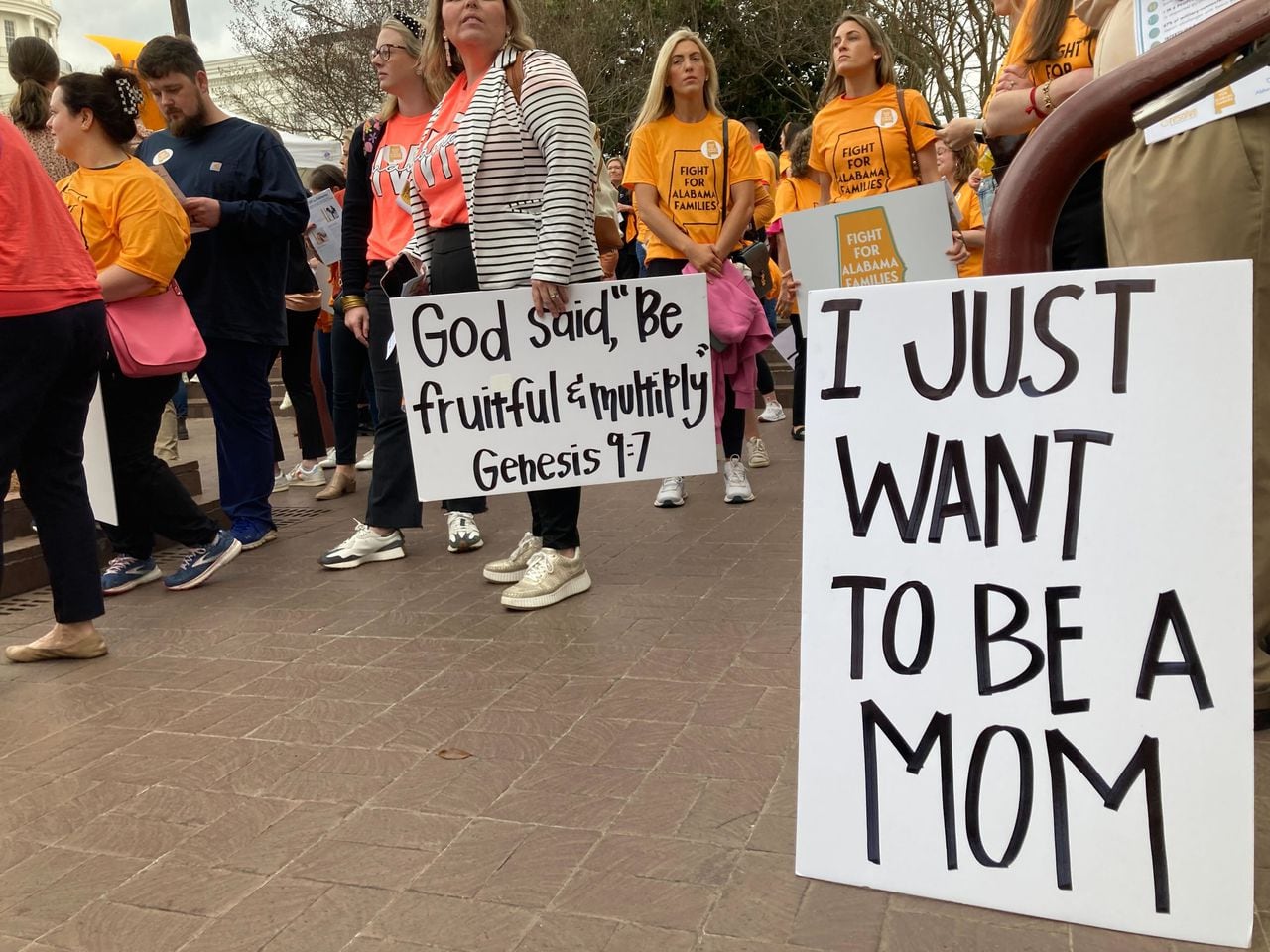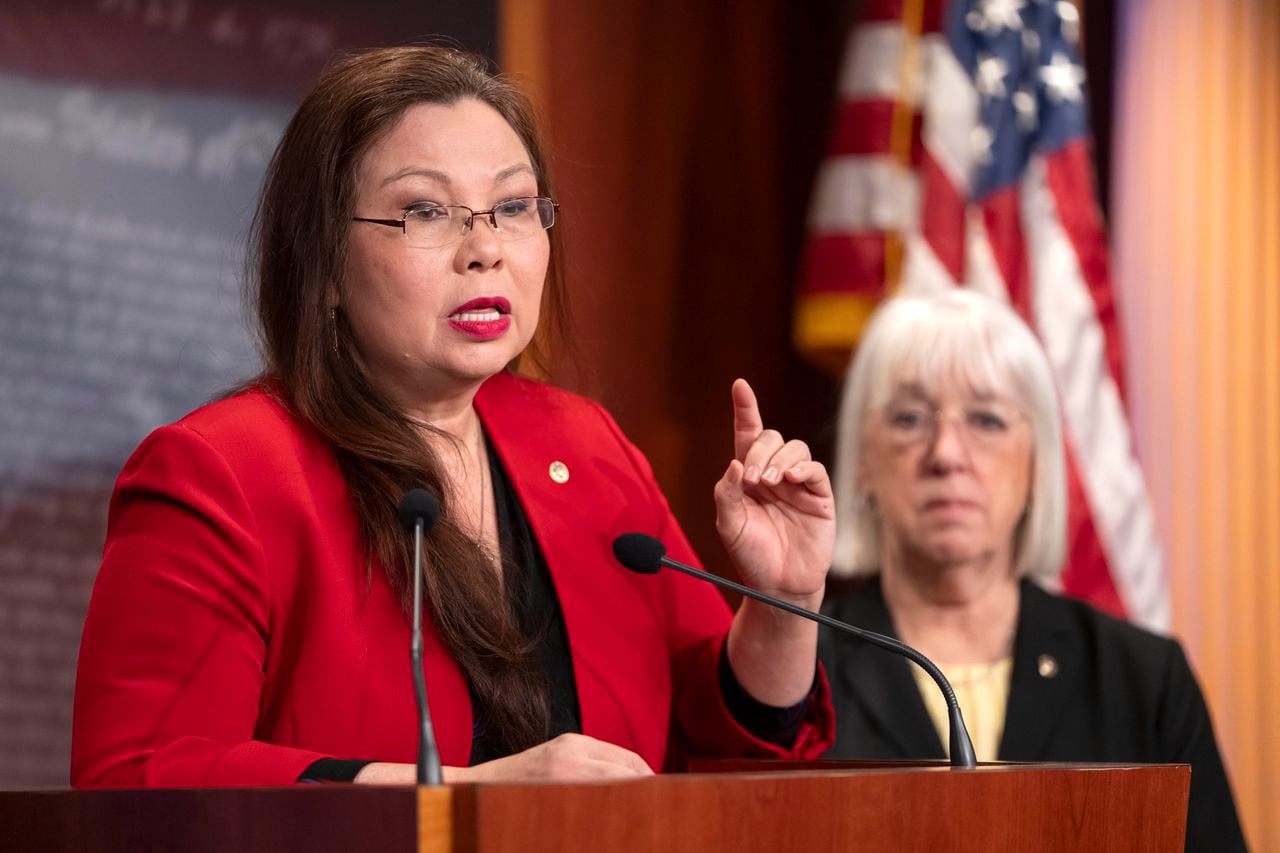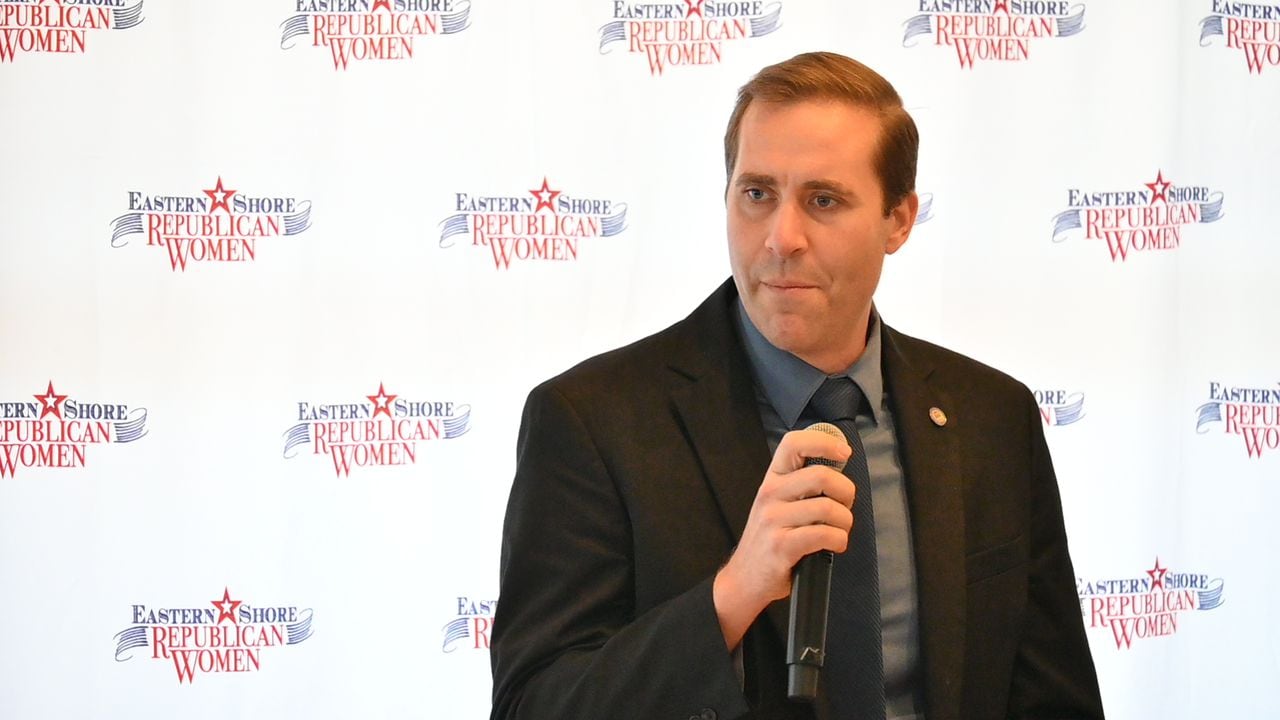‘Very dangerous issue for them’: How Republicans regroup after Alabama court’s IVF ruling
Could the Republican Party be fraying over the issue of abortion and reproductive rights following the Alabama State Supreme Court’s ruling upending in vitro fertilization within the state?
It’s a question some believe is valid amid polling over the past two years that illustrates the toxicity of an issue fast becoming the GOP’s biggest political liability in the aftermath of the U.S. Supreme Court’s undoing of Roe v. Wade, which long enshrined national abortion rights.
The concerns for Republicans are two-fold:
- Tensions between anti-abortion activists and swing-state Republicans vying for independent voters and support from suburban women during the November elections.
- Overall struggles within the GOP to craft better messaging around abortion policy, which the Democratic Party has seized as an advantage in the aftermath of the Feb. 16 ruling on IVF by the Alabama State Supreme Court.
“I think this is another lesson for the Party as they are consistently being shown that abortion is a very dangerous issue for them,” said Joshua Wilson, professor of political sciences at the University of Denver and an expert in abortion politics. “When Roe was in place, they were far better positioned to use abortion as an issue. Republicans now have to figure out where to position themselves between anti-abortion activists that are free of the restraining court (ruling), and thus are free to act, and the broader electorate that didn’t want to see Roe struck down. This is repeatedly proving to be difficult for them to navigate.”
Political Messaging
Some believe the issue has more to do with how Republicans craft a better message appealing to more moderate voters while not alienating their anti-abortion base.
“It’s not a splintering on the (anti-abortion) belief, but how we tactically and message-wise address the issue,” said Kelly Dittmar, associate professor of political science at Rutgers-Camden University, and director of research at the Center for American Women and Politics. “You’re seeing some people say, ‘I don’t want to talk about it.’ I think the splintering becomes, ‘how do you respond to this?’”
The Republican Party, in the weeks after the Alabama high court’s ruling, have performed a delicate dance of nuanced responses by balancing an anti-abortion position while expressing support for IVF and reproductive technologies for women.
Alabama Republican U.S. Sen. Tommy Tuberville is one example: After initially saying he supported the Alabama State Supreme Court ruling that frozen embryos through IVF are children, he senator said on Tuesday that he opposed the ruling.
Democrats, in the IVF ruling aftermath, have strategically tied it to Republican abortion politics under the Trump Administration. They say the placement of three conservatives on the Supreme Court led to the eventual unraveling of abortion access nationwide, and now is affecting fertility treatments.
“They started with abortion bans and now they’ve moved on to IVF, essentially ending IVF in Alabama,” said Kylie Murdock, policy advisor with Third Way, a left-leaning national think tank. “The next step likely is banning birth control, which the plurality of American women use.”
Republicans seem to be struggling with a message that resonates. Trump, who has bragged about putting an end to Roe v. Wade, is urging Alabama to find a solution to keep IVF treatments going.
The National Republican Senatorial Committee is urging candidates to distance themselves from the ruling as well.
The NRSC in a memo to candidates last week, cited polling by former Trump adviser Kellyanne Conway that showed 85% of respondents support access to fertility-related procedures including a broad group that includes “pro-life advocates” and evangelicals. Another whopping 85% say they would back candidates who prioritize increasing the available of contraceptives and fertility-related treatments, according to reports.
“I think the NRSC memo as well as the public statements from many Alabama as well as national Republicans show that they do view this issue as potentially toxic on an electoral level,” said Regina Wagner, an assistant professor of political sciences at the University of Alabama. “Even a majority of their own voters, evangelicals and pro-life activists included, support IVF, so this ruling poses a lot more pitfalls for them, especially since Democrats are going to tie it to the abortion issue as much as they can.”
Unfair tactics
John Wahl, chairman of the Alabama State Republican Party, speaks during a luncheon hosted by the Eastern Shore Republican Women on Thursday, September 14, 2023, at the Fairhope Yacht Club in Fairhope, Ala. (John Sharp/[email protected]).
Republicans, including Alabama GOP chairman John Wahl, argue that the Democratic Party and the mainstream media are unfairly tying what they say are unrelated matters – although both involve reproductive rights or choices. They argue that the Alabama State Supreme Court’s ruling has nothing to do with abortion rights but is strictly tied to the state’s Wrongful Death of a Minor Act that dates back to 1872, addressing whether frozen embryos existing outside the uterus are considered children.
Alabama lawmakers have since introduced legislation protecting IVF procedures.
Brilyn Hollyhand, a Tuscaloosa high school student and representative on the RNC Youth Advisory Council, said he believes that while the Alabama court “made the right ruling,” and that an embryo created through IVF is a “baby,” the Republican Party needs to improve its overall messaging on this issue and others tied to its anti-abortion platform.
“Republicans have a messaging problem, not a policy problem,” Hollyhand said. “Our party doesn’t need to be buckle on our stance, we need to explain it. We’re the pro-life party. We’re the pro-family party. We’re the pro-mother party. We’re the pro-adoption party. We are not the ‘extremists’ … the extremists are the party that supports abortion up until the moment of birth.”
Related content: How Alabama’s IVF ruling affects upcoming political races in the ruby red state
Wahl said blames the critics who he believes are “failing to understand or even acknowledge a key fact” in the case that was before the Alabama court.
“The court ruling started with families asking for help and a redress of grievance after they were victimized, losing the children they had hoped and prayed to bring into this world,” Wahl said, referring to a case stemming out of an incident at a fertility clinic in Mobile. “The destruction of the embryos was the destruction of life, and these families deserve the opportunity for legal recourse.”
He added, “The decision by the Alabama Supreme Court will allow them to seek justice for this senseless act and will hopefully lead to the enactment of much needed protections to prevent actions like this from every happening again.”
He blamed “liberal talking heads” for turning the issue into a “political weapon.”
“We call on them to remember the Alabama families who were victimized and to be respectful of their loss,” Wahl said.
November reckoning

Activists and others who oppose the U.S. Supreme Court’s decision to overturn Roe v. Wade gather for an abortion rights rally on Saturday, July 2, 2022, in downtown Mobile, Ala. (John Sharp/[email protected]).
That’s unlikely to happen. Democrats are pouncing, saying the IVF ruling is the direct result of Trump placing conservative judges on the Supreme Court which led to the 2022 decision in Dobbs v. Jackson Women’s Health Organization that U.S. does not confer a right to abortion. Since then, 21 states either ban abortion or restrict the procedure earlier in pregnancy than the standard set by Roe v. Wade, according to a New York Times analysis.
They believe that ruling emboldened hardline anti-abortion advocates and justices in conservative states like Alabama to go beyond abortion.
“This decision will certainly add to the additional impetus by voters to make a stand for female body autonomy,” said Sheena Gamble, spokeswoman with the Alabama Democratic Party. “Every single time that abortion has been on the ballot, in states across America, the GOP has lost handily. Alabama’s total abortion ban, the threats by Attorney General Marshall to prosecute anyone who assists a woman with receiving an abortion out of state, and rulings such as this one ensure that there will be a reckoning on Roe in November.”
Gregory Koger, a political science professor at the University of Miami who analyzes abortion politics, said Republicans should realize that Democrats will continue to tie all GOP politicians to the more right-wing positions on anything having to do with reproductive rights.

Families, doctors, and other advocates rallied at the Alabama State House on Wednesday, Feb. 28, 2024, to urge legislators to resolve an interruption to in vitro fertilization services in Alabama.(Mike Cason/[email protected])
“This issue illustrates a broader challenge for the Republican Party,” he said. “For decades, its politicians have had a difficult time saying ‘No’ to activists aligned with the party, whether the issue was abortion, gun control, or taxes. The electoral costs for taking extreme positions on these issues have been minimal compared to the costs for disappointing Republican activists.”
He, like others, say the Republicans have a messaging problem.
“Republican politicians have been trying to articulate a position on abortion that is acceptable to both pro-life activists and the general public, and so far there they have struggled to credibly commit to a moderate stance,” Koger said.
IVF fallout

Sen. Tammy Duckworth, D-Ill., speaks about a bill to establish federal protections for IVF as Sen. Patty Murray, D-Wash., right, listens during a press event on Capitol Hill, Tuesday, Feb. 27, 2024, in Washington. (AP Photo/Mark Schiefelbein)AP
Indeed, some anti-abortion activists are giving Democratic politicians and abortion rights activists enough fuel for their concerns. For instance, the National Association of Christian Lawmakers is pushing to discuss potential IVF model legislation at its upcoming meeting in June that follows the Alabama court’s ruling, according to a report by The New York Times.
Greg Davis, president & CEO with the Alabama Citizens Action Project (ALCAP) – which represents over 3,500 churches across Alabama – said a “wise approach” on IVF is for Alabama state lawmakers to “provide temporary immunity for the IVF industry” in the aftermath of the Supreme Court’s ruling.
“This would provide some time to study the process and understand how to best provide the IVF option while protecting the most innocent of all lives,” Davis said.
The fallout over the IVF ruling also comes at a time when abortion rights continue to get scrutinized by lawmakers in states throughout the nation, as well as in Congress and on the campaign trail.
Trump, the presumptive Republican presidential nominee, has suggested – if elected in November – he would back a national ban on abortions after 16 weeks of pregnancy.
A report from NBC News says there has been an uptick in fetal personhood bans by state legislatures. Those bills define a fetus as an “unborn child,” giving any unborn child protections and allowing parents to collect financial damages in cases of wrongful deaths.
In the aftermath of the Alabama IVF ruling, Florida Republicans hit the pause button on a similar bill. According to media reports, the legislation was viewed as so broad that it could affect IVF treatments.
In Washington, D.C., Democratic U.S. Rep. Tammy Duckworth of Illinois is pitching a bill to federally protect IVF and other fertility treatments, and she’s pushing for a Senate showdown by asking for unanimous consent and approval among Republicans. On Wednesday, Mississippi Republican Sen. Cindy Hyde-Smith objected to approval of the measure, saying the measure included too many poison pills.
Anti-abortion activists also continue to push for federal legislation declaring human life begins at conception, and Republicans in Congress have repeatedly backed provisions to enshrine it into federal law. Federal legislation declaring life begins at conception, introduced in 2021, had 166 co-sponsors – all Republican – including the entire GOP delegation in Alabama. The most recent version of the legislation has 124 Republican-only co-sponsors, including five House Republicans from Alabama. Only U.S. Rep. Dale Strong, R-Huntsville, is not listed as a co-sponsor.
“All of us who celebrate life, including legislators, must be consistent in principle and not instant pragmatism,” said Davis with ALCAP. “It seems as though people who believe that every conception of life is sacred is wrestling with the implications now and the possible ramifications in the future.
